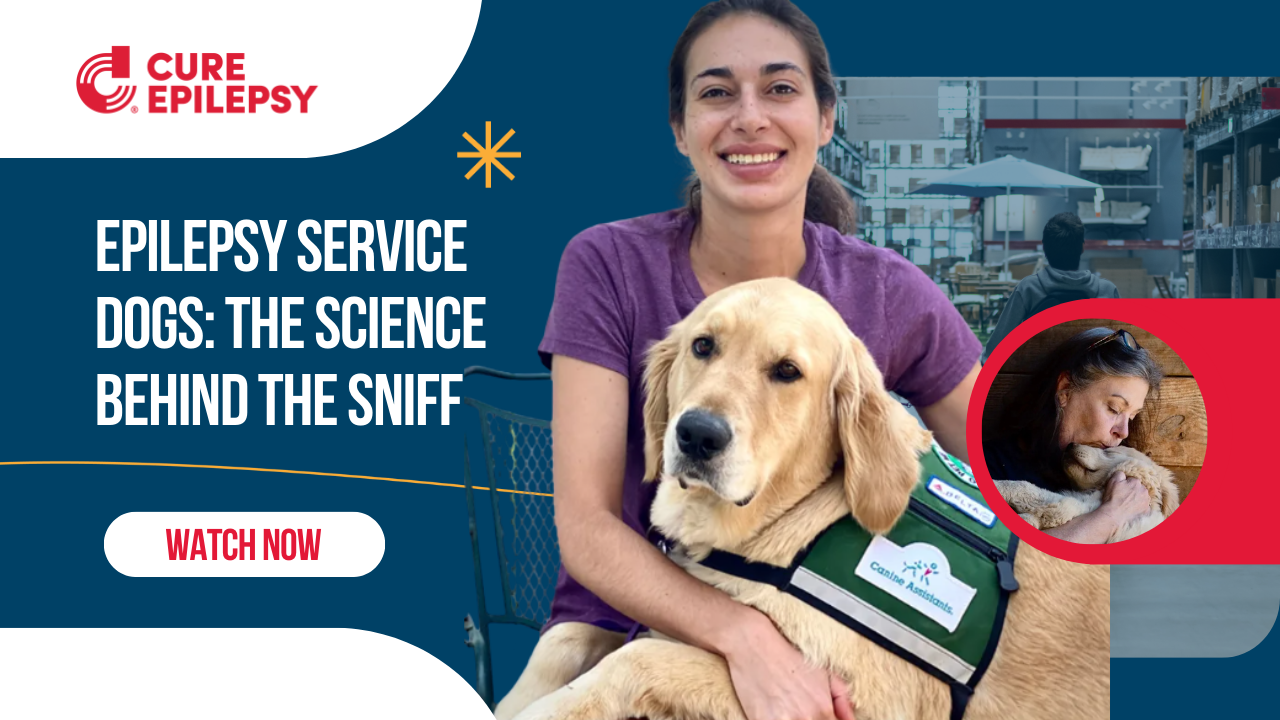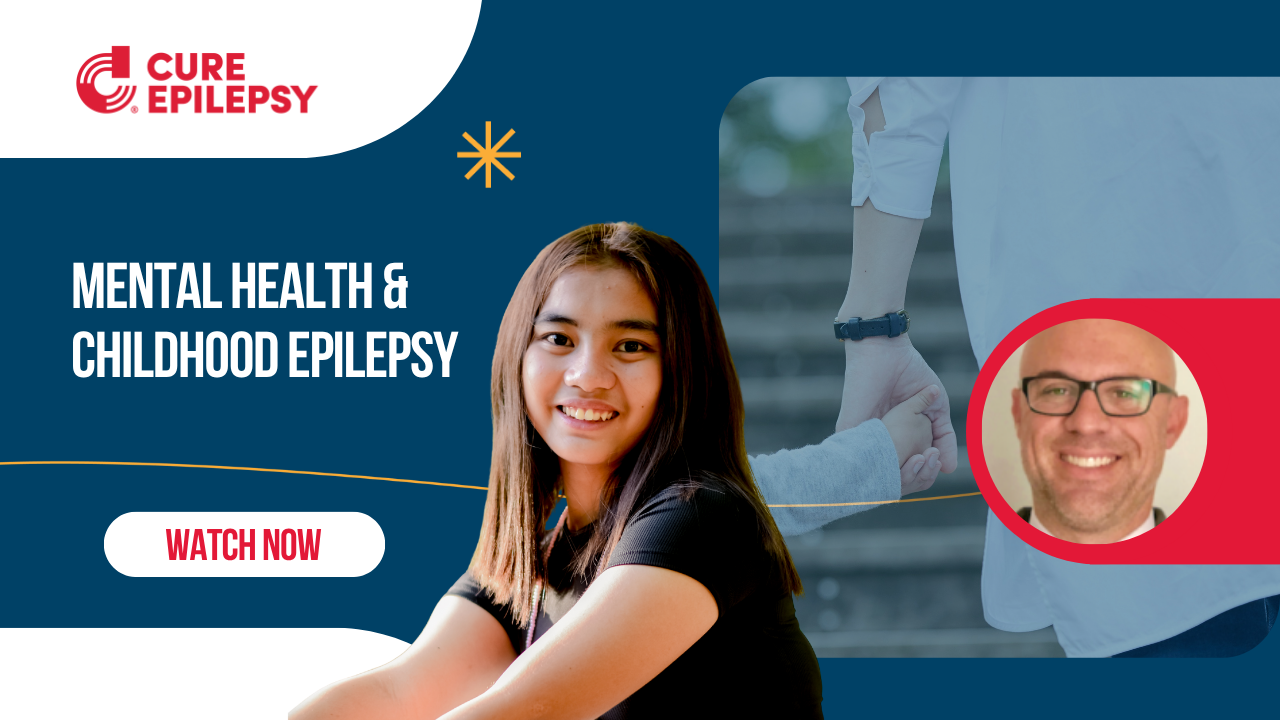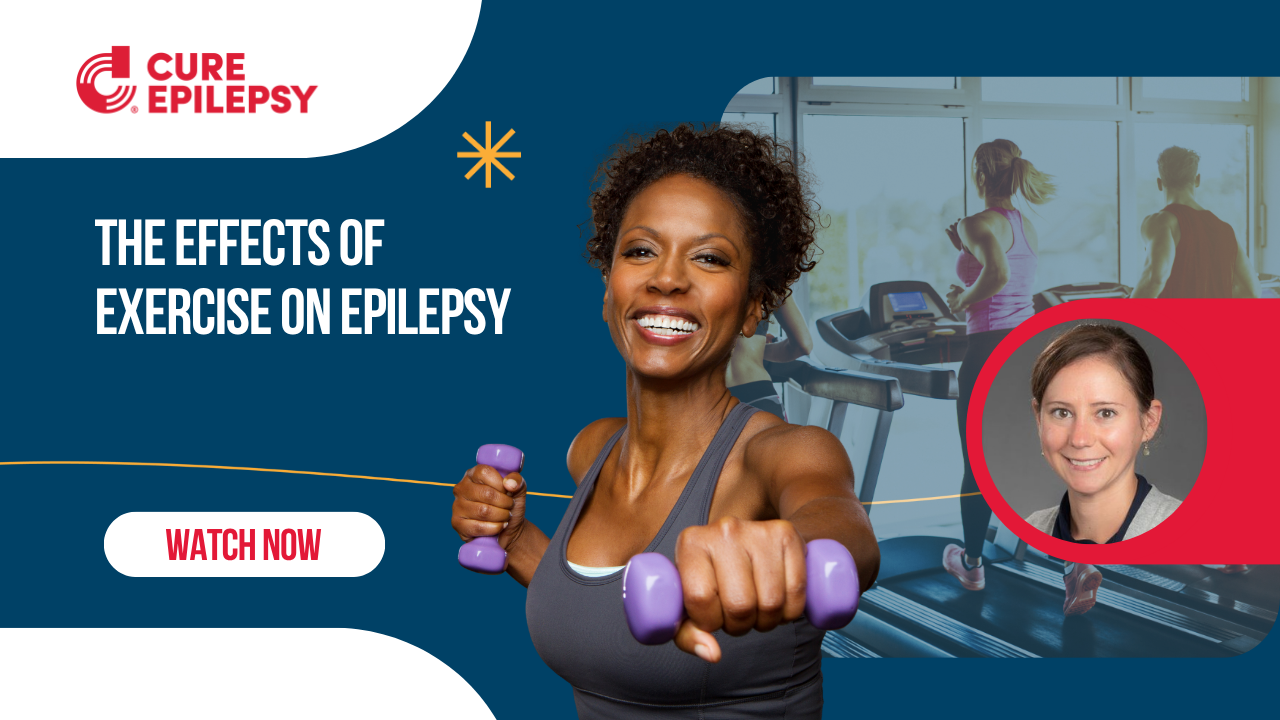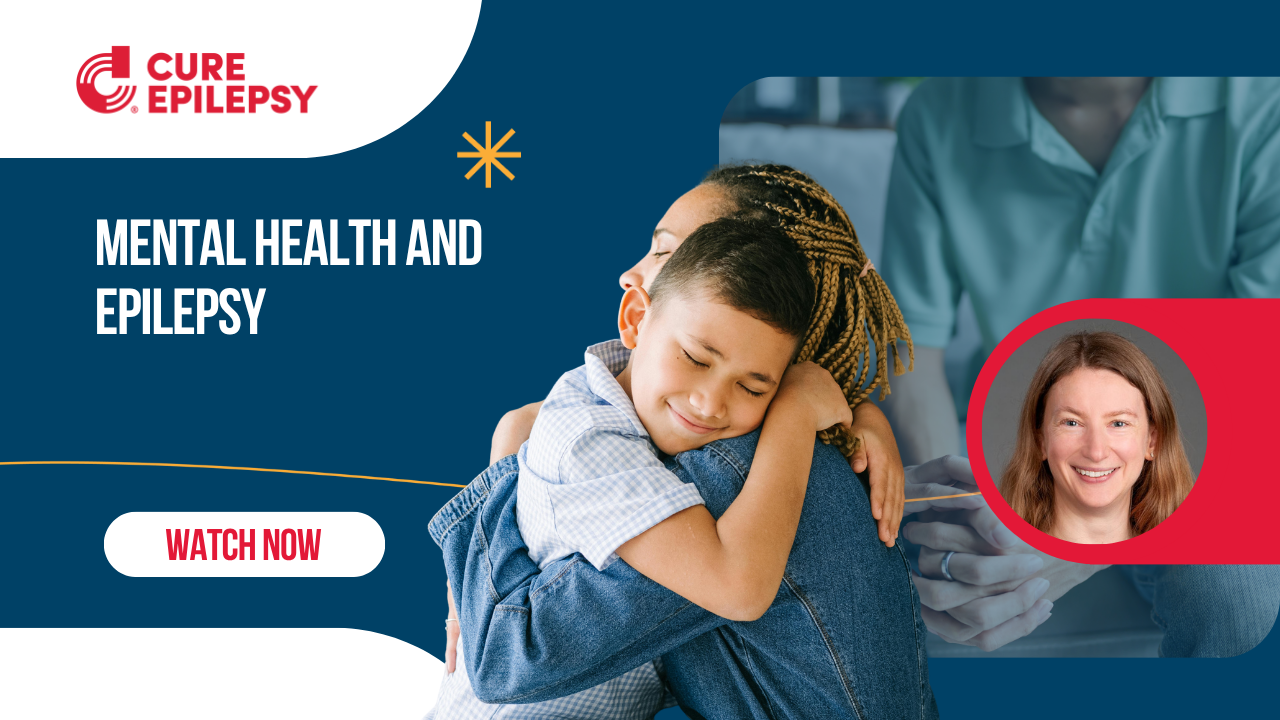Advancing Epilepsy Research
The role of people with epilepsy and their support system in research has been evolving over the past couple decades as research and the corresponding care and treatment of epilepsy become more patient-centric. Involvement of people with lived experience early in the research process helps ensure that healthcare professionals treat epilepsy in a more holistic manner, not only by alleviating the impact of seizures and their debilitating side effects, but also by recognizing that everyone’s epilepsy journey is unique.
Impact of People with Lived Experience in Research of Post-traumatic Epilepsy (PTE)
In this webinar, attendees will learn specifically about the importance and impact of people with lived experience in research of post-traumatic epilepsy (PTE). Attendees will hear about the Congressionally Directed Medical Research Programs (CDMRP), a Congressional appropriation that fills research gaps by funding high impact, high risk and high gain projects that other agencies may not fund, as well as the CDMRP’s commitment to community engagement. Additionally, people with lived experience who are deeply involved in the CURE Epilepsy mission will share their unique experiences in helping move PTE research forward.
About The Speakers
Melissa Miller, PhD, is a Health Sciences Program Manager with the United States Department of Defense. Dr. Miller is a biomedical science administrator with an innate sense of urgency to support research that accelerates clinical application of disease interventions. She oversees the Epilepsy Research Program (ERP) within the CDMRP and engages stakeholders across different research domains to identify and fund projects with real promise to improve the quality of life for those impacted by epilepsy.
Jack Somers is a Captain in the United States Marines Corp (Ret.) and who served his country in Afghanistan. Jack serves on the Steering Committee of CURE Epilepsy’s latest project in PTE research.
Patty Horan has been a long-time supporter of CURE Epilepsy and currently serves as a lived experience reviewer for the CDMRP ERP. Patty’s husband, Pat Horan, suffered a traumatic brain injury in 2007 and overcame his grave diagnosis and the devastating consequences of the corresponding PTE and now is nearly 10 years seizure-free.
Q&A Transcript
Because science isn’t your background this is all new to you. So why did you want to participate in research as a person with lived experience? What compelled you?
Jack Somers: I think the most important part to me was to serve. Ultimately, that brings me the most amount of joy. I hope that’s not a selfish response, but it is. Serving the community is the utmost importance to me. And given I do have experience, and I have so much experience over the last 14 years, the opportunity to give back, and hopefully, if it’s helping one person who has this, or helping one mother, father, wife, husband, son, daughter, anyone, a friend, who is a loved one of somebody who has PTE, then that’s, then sign me up. Anything I can do from my position is worth it. And so, service is everything to me. And so, anything I can do from my position is an obligation of mine.
Patty Horan: I guess I agree with Jack, and the fact that I’ve seen so much suffering in the veteran community is unbelievable. And if there’s anything that I can do to reduce the suffering of people in this community, they deserve it all. I mean, they deserve our attention, our focus, and anything we can do to relieve some of what they’re going through is worth it. This war is awful. But I feel like this contributes to not just veterans, but the society as a whole. Because we’re learning how to better take care of our brains, and everyone’s got a brain. And I think that it’s just a really important mission.
And I will say, I am not a scientist at all, I have a business background. And it’s very scary at first to get involved in the research. I have a little selfish reason to, just to be engaged with all these brilliant scientists, that actually can give me a better understanding of how to help my husband, how to support him. And understanding of what the broader picture of epilepsy looks like, and what’s happening out there, as far as access to care, and just the latest and greatest medications, and what’s going on in the clinics.
It is daunting without having a science background to step into a role like yours, where you are discussing with the science, with well-established researchers. What were your greatest concerns when thinking about this, when you were engaged with this? And how did you overcome those concerns?
Patty Horan: I think in the beginning it was really, it’s a totally different language. It’s like walking to a foreign country, going into like, what are they saying?
So the good thing about the ERP is, you do get some time. Each person is given five projects to evaluate, and you get a couple of weeks, look over all of these. You do have to present them and speak the language, but you have a co-presenter. So if you mess up or if you didn’t get it quite right, you have somebody else to swoop in and fix it up a little bit. But the whole panel discusses everything later too, so you’re not alone.
And I think a little of it was just ignorance, because with the first panel I sat on, I was very overwhelmed. On the first break, I went outside, and I was like, “What am I here for?” But people were so gracious, they were so nice. They were so thrilled that I was there. They felt like they thought that my opinions were valuable, which was amazing, because these are some of the smartest people in the country. So it was very scary at first. And I fumbled through presenting probably the poor researchers that got me. But I did it. And every year it gets easier, and I understand the brain a little bit more. And I’ve made some great, I’ve met some great people with CURE, and just the people on the panel are just the best people. And Melissa, and it’s been overall, a great experience.
Jack Somers: I mean, similarly to Patty, I came into it with, I would say, I was a little naive, but very excited to join this group. I didn’t know a whole lot about it, but I was okay with that. I just wanted to serve and give back, and if they were willing to let me join, that was enough. I was just so excited that they were willing to let me join.
It was really the first advisors call that, like Patty, I was just blown away by they’re going through their different milestones and what have you, and the verbiage, all of the scientific research that they had done. And I just didn’t know the level of expertise that these folks had, and I didn’t understand a lot of it, but conceptually I could get it. And so, in order to overcome it, I kind of just used that old, the acronym, keep it simple, stupid.
But I just had KISS, and I just said that the best way that I can overcome this is to just keep it simple. And when I did that, I just listened and I kept it simple, and all of a sudden, I understood what they were talking about. And it was incredible, because I learned that all of these folks, who just like Patty said, some of the most brilliant neuroscientists, and epileptologists, and folks in the world, amazing. At Cambridge, at Texas Tech, at UCA, research groups, they are trying to solve the problem that I have. And they could do whatever they’d like, but there they are, and they’re passionate about it, and they’re working on this all the time.
And it actually, it almost brought me to tears. Because I said, “Why are they doing this? Why are they working on this problem?” They could do anything in the world, and they’re trying to solve the problem. They’re trying to answer the questions that I’ve been trying to answer, and keeping it simple. Let me learn. Let me figure out just what they were trying to do. And so, I then didn’t have to worry too much about all the words that they were using. I just got to listen to generally what they were trying to do, and it blew me away. It still does, every single time I listen to them.
What do you feel is the value in sharing your voice? And what do you hope your participation achieves in doing this? So what’s to the value, and what do you hope the outcomes will be?
Jack Somers: I hope that I can use my experience to give back and help one person. I hope that I can serve again. I hope that I refuse to let my experiences be lost in translation, or be just mine. I refuse to let them go to waste
And so, my hope is that they get leveraged, is that they’re used in ways that we are just learning how to use them, and how they were used five years ago or 10 years ago is actually just the beginning. And that we learn how to use my experiences more and more, and in more efficient, more effective ways as time goes on. That’s my goal.
Patty Horan: Well, a little bit more support for caregivers and the families. So the VA, the Veterans Administration, they need concrete evidence of what’s happening in our households. They don’t necessarily understand the toll of epilepsy in a household, on a life, especially uncontrolled epilepsy. So I feel like I contributed, at least to start looking at quality of life studies.
We have some of those in our portfolio, and I feel like I push for that. And I’m hoping that the data from those studies will be concrete evidence for the VA to actually compensate these families better, that have epilepsy. They will give them better services, better access to care, and also, home health benefits. Because some of them, and we were at this point in the beginning where I couldn’t leave Pat alone for five minutes; but we didn’t qualify for any of those services, because he’s not injured enough, or the epilepsy didn’t qualify him. So it’s interesting. So I’m hoping that out of with my voice, the value will become, will be that veterans are better supported with epilepsy by the Veterans Administration, and there’s a better understanding of the daily life.
Dr. Miller, what are your hopes and visions for the future of lived experience participation, and how we go back to how can people get involved?
Dr. Miller: So I think my greatest hope for the near future is for more researchers and people with lived experience to have the conversations that we were just having. It’s so important to have opportunities for these conversations, to force opportunities for these conversations, because without them, the researchers are doing their best, but they are not the experts in your experiences. And we need you to tell them, and guide them into what is the most important and impactful questions to be researching for policy change, for care change, for overall change. And that’s what I hope really will impact the future.
And the way that people can get involved with the ERP is just going to the CDMRP website. We have a big banner on our website that says, “Get involved.” And if people are interested in reviewing for us, in consulting on projects, let us know. We can help connect you to the necessary people. I’m sure, Laura, that your organization also has opportunities. I think there’s a lot of opportunities, and we just need people, and their generosity of time to volunteer, and we can make a really great impact in this field.
The information contained herein is provided for general information only and does not offer medical advice or recommendations. Individuals should not rely on this information as a substitute for consultations with qualified healthcare professionals who are familiar with individual medical conditions and needs. CURE Epilepsy strongly recommends that care and treatment decisions related to epilepsy and any other medical condition be made in consultation with a patient’s physician or other qualified healthcare professionals who are familiar with the individual’s specific health situation.









